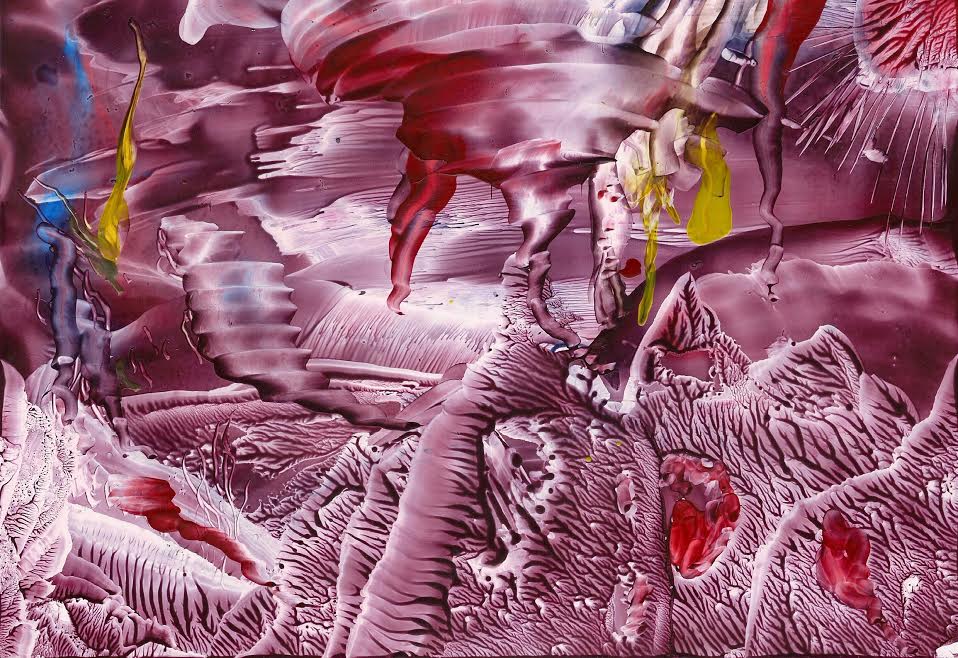
“Revelation” by Mia Avramut, wax on paper, 5.8 x 8.2 in.
What happens when you leave
a house? Its body begins to rot
for you and live on for another.
As much as you deny it,
there are always two houses,
two sets of furniture—
one with refrigerator doors
collecting grime between plastic lips,
new family, new broken-down car
killing the lawn.
Then, there’s the house
as you remember it,
swimming upstream
in your imagination, year
after year, consistent as salmon.
That summer, my mother
obtained a box of fish,
their bellies emptied
of caviar.
Leaning over the counter
by the sputtering garbage disposal,
she intended to make dinner
out of those eggless pouches.
No air conditioning, no job,
no images for our eyes
but burnt grass splayed out for miles
like dirty lace doilies,
houses set in the middle
like cheap teacups.
She deroofed the scales
from spiculated skin.
Her movements calculated,
her cuts deliberate,
her gasp sharp but short
when she saw the worms,
pink pencil cores of muscle
sheathed around bone,
pockets of activity in the otherwise
dead. How I’ve tried to bury it,
the sound of useless flesh
falling into a trash bag.
How I’ve been drawn to it,
as to a place where something
remarkable happened,
how I stand in that kitchen
and it’s me who’s opening
boxes and boxes of freshwater fish,
each more terrifying than the next,
looking for what was broken,
what is still alive.
All things rot, even houses,
but what happens afterwards?
And who will stumble
upon our remains and ID us,
will they know us from our bones
or the troughs left empty
in the dirt?
I tell her we will last.
Blessed be the calcified heart,
the mineralized shell
of life hardened in the sun.
The tar that keeps us together
long enough to be found,
documented, crushed into tea,
no ingredient too taboo
for a mother, a daughter.
Ting Gou lives and writes in Ann Arbor, where she is a student at the University of Michigan Medical School. Her poems have appeared in the Bellevue Literary Review, Best of the Net 2014, Ghost Ocean Magazine, Midwestern Gothic, and elsewhere.
Read an interview with Ting here.

Pingback: Interview with Ting Gou | Rkvry Quarterly Literary Journal